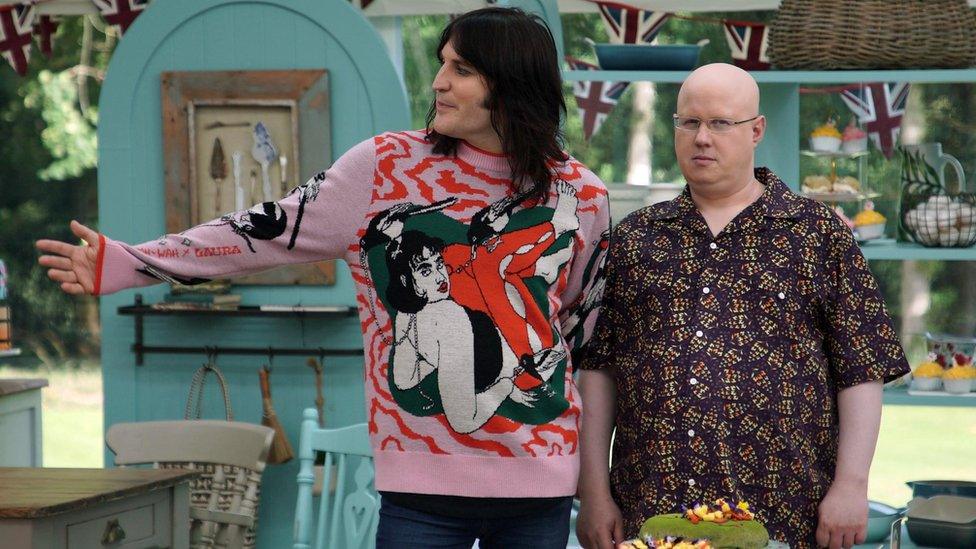Why soy sauce is causing a stir
- Published

It was Japanese week on Great British Bake Off
The Department for International Trade has been causing something of a stir on social media, after tweeting about Tuesday's Great British Bake Off.
It was Japanese week on the programme - and the DIT account : "The bakers used a lot of soya sauce in the first challenge on #GBBO, so it's a good thing it will be made cheaper thanks to our trade deal with Japan."
But many users on social media pointed out the UK currently benefited from a trade deal between the EU and Japan that prevented any tariffs, or taxes, on imports of soy sauce - so it would not be made cheaper when the UK switched to its new deal with Japan, on 1 January.
The DIT : "Thanks to the UK-Japan trade deal, soya sauce will be cheaper than it otherwise would be under WTO [World Trade Organization] terms, on which we would be trading with Japan from 1 January if we had not secured the UK-Japan trade deal."
Allow Twitter content?
This article contains content provided by Twitter. We ask for your permission before anything is loaded, as they may be using cookies and other technologies. You may want to read and before accepting. To view this content choose ‘accept and continue’.
In the UK's it will charge on imports from countries with which it does not have trade deals, the figure for soy sauce is 6% - less than the 7.7% the EU charges.
So without the UK-Japan trade deal, imported Japanese soy sauce would have become more expensive from January.
But there is another problem with the original tweet - most soy sauce in the UK does not come from Japan.
Amoy, owned by Heinz, has 58% of the £29m market according to research company Euromonitor International. Its soy sauce is made in China and bottled in the UK so the UK-Japan deal will have no impact. But the tariff payable on soy sauce imported from China will come down slightly from the 7.7% it was as part of the EU to the UK's new rate of 6%.
The second biggest brand is Kikkoman, a Japanese company, with 20% of the market. However, most of its sauces found in the UK are made in the Netherlands and only some is imported from Japan.
If the UK does not do a trade deal with the EU, then from 1 January, imports of soy sauce from the Netherlands will go from having no tariff to having a 6% tariff.
The remaining 22% of the market is made up of supermarket own brands and smaller brands, some of which are indeed made in Japan.